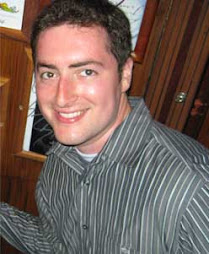Since I'm writing this post, I'll be the first to chime in, but I encourage your dissent or your agreement at the bottom of this article.
Let me be the first to tell you that answer to this question is a resounding NO. I know, you're not surprised, because I have probably made this claim on this forum before.
This is not to say that Schilling didn't have a great career. The combined longevity and post season excellence gives Schilling a decent (yes, only decent) case for hall enshrinement. But if I was a member of the Baseball Writers Association of America, the panel that votes for these players, I would not put a check mark next to Schilling on my ballot.
Here's why:
Pitchers that warrant hall of fame induction exhibit a great level of consistent dominance over a long period during their career (unless their careers are ended prematurely by injury like Sandy Koufax's was). Schilling's dominant stretch came between 2001-2004, when he was considered arguably the best pitcher in baseball during that time. (He won 74 games over those 4 seasons.) Yet while he was considered a very good pitcher during the 1990s, which covers 10 of the nearly 20 seasons in his career, you'd be hard pressed to argue that he was considered one of the best or the most dominant in that time.
This is because if you examine his statistics over the first decade of his career, you'd find there was not one dominant stretch. His best year in the 90's was was the 1997 campaign in which he went 17-11 with a 2.97 ERA. He was certainly dominant that year, as he struck out a whopping 319 batters while only walking 58. But in the Phillies World Series year of 1993, while he had some incredible performances in the post season, his regular season was good, not great. He went 16-7, but his ERA was 4.02.
In the rest of the 1990s, sure, the Phillies weren't a great team, but Schilling didn't accumulate the win total of a hall of fame pitcher. He averaged just 11 wins per season, as he won 110 games during the decade. How many hall of fame pitchers do you know that averaged 11 wins a year for a decade?
He had some years where he had a sparkling ERA (the aforementioned 2.97 ERA in 1997, a 2.35 ERA in 1992, a 3.19 ERA in 1996), and racked up a lot of strikeouts (319 in 1997, 300 in 1998). For the most part, though, before the steroid era, he had some very good seasons, not great or hall of fame worthy statistics. And there are pitchers that are not in the hall of fame, like Bert Blyleven, who won 71 more games than Schilling and whose numbers compare or exceed Schilling's in many respects, who are not in the Hall.
After 2000, Schilling posted some banner years for his career, with Arizona in 2001 and 2002, and even without the win total he was still excellent in 2003. In 2004 he was phenomenal again, leading the Red Sox to the World Series title for the first time in 86 years and pitching some amazing post-season games, like the famed "bloody sock" game. In 2007 he was very good again, but great in the playoffs as Boston won yet another World Series title. Schilling won three titles in the final seven years of his career, and because two of them were with the beloved Red Sox people will overrate his career today.
The simple fact is, he was a really good pitcher who was outrageous in the playoffs. That doesn't make a hall of famer in my book.
Some people will say that the playoff performances alone should get Schilling in the hall of fame. And while I realize the objective of every team every year is to win it all, and Schilling certainly helped his teams do just that, how can we take 19 career post seasons starts and have them outweigh the other 569 games he pitched in during his career or the 436 other starts? While he was spectacular once the calendar turned to October, he was only spectacular for some of the 20 years he pitched during the regular year.
Hall of fame players are spectacular for the majority of their careers. That's why they're in the hall of fame. It wouldn't be the most exclusive club in all of sports if they were letting in just anybody.
To say Curt Schilling was just anybody would be undervaluing him, yes. But to enshrine him into Cooperstown would be to say that he was an elite pitcher for most of his career.
Look at the numbers. They're really good, but not elite. So Schilling shouldn't be in the hall of fame. Bottom line.


great post. Compelling arguments you make. I would suspect he will ultimately get in even though he probably doesn't deserve it.
ReplyDeleteThe people who think he does deserve to get in will rattle off his playoff stats. To them, I say that Schill has had the benefit of the "wildcard" round of the playoffs that a lot of guys waiting in line at Cooperstown did NOT have the luxury of. Blyleven and Jack Morris might have surpassed his playoff "excellence" had they had a few more playoff starts a year. Put Morris and Blyleven in, then we'll talk, but I'll still probably say "NO"
ReplyDeleteThat's a great point, Geerunt. Didn't even think of that. Well said.
ReplyDelete